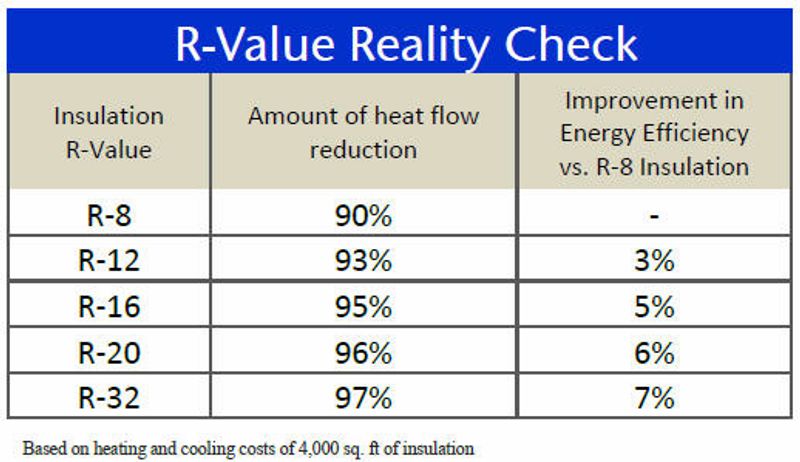ENERGY EFFICIENCY
Should this matter to me?
A garage door opening is the largest moving object in your home. Insulated doors will help to reduce the transfer of heat or cold air into your garage.
This is important for a number of reasons:
1) If your garage is attached to your home, air in the garage can travel through the doorway to your living area. An insulated garage door will reduce the transfer of air from the outside to the inside.
2) If you use your garage as a workshop, your comfort will be a top priority. An insulated garage door will help keep the temperature in the garage within a narrower temperature range as compared to the extreme range of the outside temperature.
3) If your garage is below another room in your home, air can travel through the ceiling of the garage into the floor of the room above. An insulated door will keep temperatures in the garage fairly stable to reduce the temperature fluctuation in the room above.
4) An insulated garage door is generally quieter and has a more attractive interior than a non-insulated door.
What is R-Value?
R-Value is a measure of thermal resistance used in the building and construction industry. Specifically, R-value is thermal resistance to heat flow. Many manufacturers use R-values to show the energy efficiency of their product. This number is calculated based on the thickness of the insulation and its chemical properties.
The higher the R-value number, the better the insulating properties of the material. However, an R-16 value is not twice as good as an R-8 Value. R-16 does not offer twice as much thermal resistance or twice the energy savings of an R-8 value. A value of R-16 offers a 5% reduction in heat flow and a 5% improvement energy efficiency than a value of R-8, not 50%. See chart below for R-Value comparisons.
A door’s insulating capabilities can be greatly affected by the door’s construction. For that reason, insulated doors are built to maximize energy efficiency. Door section construction and insulation help keep your garage as comfortable as possible.
Effective January 1, 2009, the Door and Access System Manufacturers Association (DASMA), which represents over 90% of the door and access systems manufacturers in the US and Canada, put into effect a voluntary standard for manufacturers to list R-values in accordance with DASMA Technical Data Sheet (TDS) #163.
